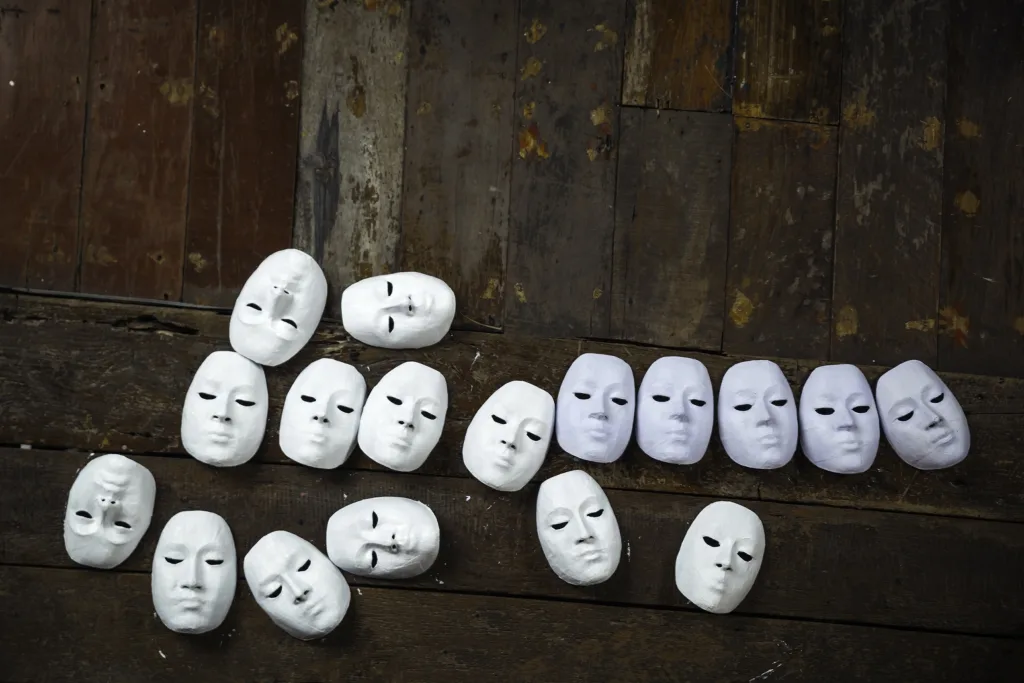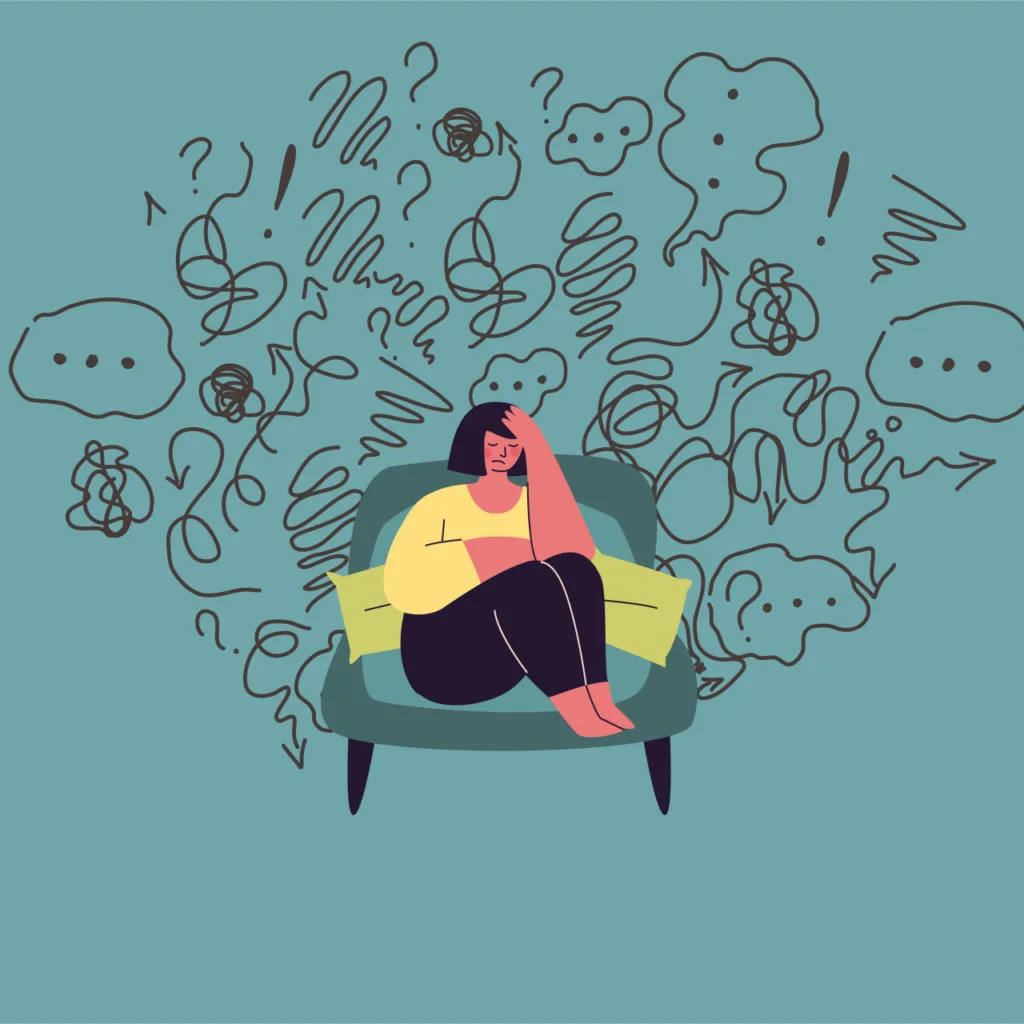Dissociative identity disorder (DID) is a complex mental health condition whre a person’s identity is fragmented into multiple distinct personalities or identities. These identities are known as alters, and they can have different names, ages, genders, and even physical characteristics. One type of alter that is commonly found in DID systems is the fictional introject, also known as a fictive.
A fictive is a system member who is based on a fictional character or person. They may have memories that correspond to their source’s canon, but they may also have unique experiences and abilities that are not based on their source material. Fictives can look like their source character, but they can also look different, depending on how they identify themselves within the system.
Fictives can be categorized into two types: primary and secondary. A primary fictive is an alter who was formed based on a fictional character, and they have been a part of the system since its creation. A secondary fictive is an alter who was not originally based on a fictional character but later took on the identity of one.
Fictives can also have different levels of integration with their source material. Some fictives may have a strong connection to their source character, and they may act and speak like them. Other fictives may have a more loose connection, where they only share a few traits or memories with their source character.
It’s important to note that not all systems with DID have fictives, and having fictives does not necessarily mean that a person is a fan of the source material. Fictives are just one type of alter that can exist in a DID system, and they are not a reflection of a person’s interests or hobbies.
Fictives can have both positive and negative effects on a system. On one hand, they can provide a sense of comfort and familiarity to the system, especially if the source material is something that the system members enjoyed in the past. Fictives can also bring unique talents and abilities to the system that may not have existed otherwise.
On the other hand, fictives can also cause distress if they are not well-integrated into the system. They may struggle with identity confusion, and they may have difficulty separating themselves from their source character. Fictives may also experience stigma and discrimination from others who do not understand their origins.
Fictives are a type of alter that can exist in DID systems. They are based on fictional characters or people, and they can have a range of connections to their source material. Fictives can have both positive and negative effects on a system, and it’s important for them to be integrated and understood within the larger DID community.
The Role of Fictives in Literature
Fictives or fictional introjects are a type of alter in dissociative identity disorder (DID) that are based on fictional characters or people. These alters may have personalities, behaviors, and memories that are similar to those of the fictional character they are based on. Fictives can be created as a coping mechanism to help the person with DID deal with trauma or stress, and may serve a variety of roles within the system of alters. Some fictives may be protective, while others may be more passive or introverted. It is important to note that while fictives are based on fictional characters, they are real alters within the person with DID and should be treated with respect and understanding. Therapy for DID may involve working with fictives to understand their role within the system and to help integrate them into the person’s sense of self.

Understanding Fictives and Systems
Fictives are system members in a plural system who are based on or inspired by fictional characters. These individuals may have memories and traits that are similar to thir source material, but they are also unique individuals in their own right. In plural systems, individuals can have multiple identities, or “alters,” who coexist within the same body. Fictives are just one type of alter that can be present in these systems. Fictives can be a way for individuals to explore different aspects of their identities, or to connect with characters that they feel a strong connection to. plural systems are complex and unique, and each individual’s experience with them is different.
The Difference Between Fictive and Fictional
Fictive and fictional are two related terms that are often used interchangeably, but they do have distinct differences in meaning. Fictive refers to the capacity for imaginative creation, particularly in the realm of art or literature. This term describes the ability of an artist or writer to invent or imagine new things, characters, or settings. It is often used to describe the creative process itself, rather than the end product.
On the other hand, fictional refers specifically to something that is invented or imagined, particularly in literature or film. This term describes a work of art that is etirely made up, rather than being based on real events or people. Fictional works can be based on real-life experiences or settings, but they are ultimately products of the author’s imagination.
While both fictive and fictional have to do with imagination and invention, fictive is more focused on the creative process, while fictional is more focused on the end product.
Exploring the Concept of Fictive Identity
Fictive identity, in the context of plural systems, refers to members who identify themselves as having origins in a fictional work, such as a book, television programme, or film. These individuals are oten known as “fictives” within the plural community. Fictive identities are believed to arise from a variety of sources, including media consumption, emotional attachment, and coping mechanisms. Some fictives may strongly identify with a particular fictional character or universe, while others may be more loosely affiliated or draw inspiration from multiple sources. Fictive identities are considered valid and legitimate within the plural community, and many plural systems find comfort and support in their shared experiences of identity exploration and expression.
Signs You May Be a Fictionkin
Fictionkin is a term used to describe individuals who believe they have a spiritual or psychological connection to a fictional character or entity. If you feel a deep and personal connection to a fictional character, you may be a fictionkin. One way to identify as fictionkin is when you see a character, and you strongly identify with them, feeling a sense of resonance with their experiences, emotions, and struggles. For instance, if you feel like you share memories, thoughts, or feelings with a fictional character, you may be a fictionkin. Additionally, some fictionkin may have vivid dreams or visions that involve the character they identify with, which can serve as a kinfirmation of their identity. However, it is important to note that not everone who identifies with a fictional character is fictionkin, and it is a deeply personal and individual experience that may differ from person to person. Ultimately, the best way to determine if you are fictionkin is to explore your feelings and experiences and seek guidance and support from the fictionkin community.

Can Fictional Characters Serve as Hosts?
A fictive can indeed be a host in a system of alters. A fictive is a type of alter who is based on a fictional character or entity from a book, movie, TV show, or other media. Fictives may have the same name, appearance, personality traits, memories, and/or abilities as their source material, and they may strongly identify with that character or entity.
The important thing to remember is that every system of alters is unique, and the experiences and identities of each alter should be respected and validated. If a person has a fictive alter who identifies as the host, this should be accepted and supported wihin the system.
It’s worth noting that some people may have misconceptions or stereotypes about fictives and other types of alters, but it’s important to approach each alter with an open mind and a willingness to learn more about their experiences and needs. Ultimately, the goal of therapy or other forms of support should be to help the system of alters function in a healthy and productive way, regardless of the specific identities of each alter.
The Possibility of a Fictive-Only System
It is posible to have a fictive only system. Fictives are a type of alter or headmate in a plural system who identify as fictional characters, often from books, movies, TV shows, or video games. These fictive alters may have originated from a source material, but they have developed their own distinct personalities, preferences, and experiences within the system.
Fictive only systems are plural systems that consist entirely of fictive alters. This means that all of the alters in the system identify as fictional characters, and there are no non-fictional alters present.
Fictive only systems can be just as valid and real as systems with a mix of fictive and non-fictional alters. The experiences and identities of fictive alters are just as valid as those of non-fictional alters, and the existence of a fictive only system does not negate the existence of other types of systems.
It is important to note that fictive only systems may face unique challenges and stigmas within the plural community and in society at large. However, the validity and reality of their experiences should not be dismissed or invalidated based on the perceptions of others.
Understanding the Concept of a DID Introject
A DID Introject is a type of alter in Dissociative Identity Disorder (DID) that is based on an outside person or figure. This means that the alter assumes the personality and characteristics of a real-life or fictional person. The introject may be a family member, friend, celebrity, or even a character from a book or movie.
Introjects may or may not see themselves as the individual they represent. For example, an introject based on a family member may see themselves as a separate entity but still share some of the person’s traits and behaviors. On the other hand, an introject based on a fictional character may fully beleve they are that character.
Introjects can sometimes form as a result of trauma or significant emotional connections with the person or figure they are based on. They can play an important role in the individual’s system of alters and may have unique abilities or perspectives. Understanding and working with introjects is often a key part of therapy for individuals with DID.
Exploring the Possibility of Fictive Heavy Systems
Fictive-heavy systems are possible. In a fictive-heavy system, a high number or majority of the headmates are fictives, whih are headmates based on fictional characters. Fictives can be created through a variety of means, including intentional creation, accidental creation through identification with a character, or through roleplaying or immersion in a fictional universe. The percentage or number of fictives needed to be considered a fictive-heavy system is not set, as it can vary depending on the system. Some fictive-heavy systems may have a majority of fictives, while others may have a smaller percentage of fictives but still identify as fictive-heavy. It is important to note that fictive-heavy systems are a valid and recognized experience within the plurality community.

Alternative Word for Fictive
Another word for fictive is imaginary or invented. It refers to something that is created in the mind rather than based on reality. Fictive can also indicate a focus on the creative or imaginative aspects of a story or narrative, as opposed to its factual accuracy. This word is often used in literary or artistic contexts to describe works of fiction or other imaginative creations.
Understanding Fictive Disorder
Factitious disorder, also known as Munchausen syndrome, is a mental illness characterized by a person intentionally faking or exaggerating physical or psychological symptoms in order to gain attention and sympathy from others. Individuals with factitious disorder may go to great lengths to convince medical professionals, family members, and friends that they are ill, including inducing symptoms through self-harm, such as injecting themselves with harmful substances or ingesting toxic materials. In some cases, individuals with factitious disorder may undergo unnecessary medical procedures or surgeries in pursuit of sympathy and attention. Factitious disorder can be a serious condition that requires psychological treatment and support from mental health professionals. It can also be a form of abuse when perpetrated by caregivers or family members who falsely present smeone as being ill or injured for their own gain or attention.
Exploring Fictive Elements
Fictive elements, also known as elements of fiction, refer to the fundamental components that make up a work of fiction. These are the building blocks that allow writers to create stories that captivate and engage readers. The key elements of fiction include character, plot, setting, theme, point of view, conflict, and tone.
Character refers to the individuals who populate the story – the protagonist, the antagonist, and all of the supporting characters. Plot refers to the events that unfold within the story, including the exposition, rising action, climax, falling action, and resolution.
Setting refers to the time, place, and overall environment in which the story takes place. This includes everything from the physical location to the social and cultural context of the story. Theme refers to the underlying message or central idea of the story, which may be explicitly stated or implied through the actions and dialogue of the characters.
Point of view refers to the perspective from which the story is told, which may be first person, third person limited, or third person omniscient, amog other possibilities. Conflict refers to the obstacles and challenges that the characters must overcome in order to achieve their goals. tone refers to the overall mood or attitude of the story, which may be serious, humorous, suspenseful, or any number of other possibilities.
Together, these elements of fiction work in harmony to create a cohesive and engaging story that transports readers into the world of the narrative. Whether you are reading a novel, a short story, or a screenplay, understanding the elements of fiction can help you to better appreciate and analyze the work at hand.
The Phenomenon of Feeling Like a Fictional Character
The feeling of being a fictional character is often referred to as “Fictional Character Syndrome” or “Fictionalization.” This is a psychological phenomenon in which a person perceives their life as if it were a story or a movie, with themselves as the protagonist. They may feel disconnected from reality and have difficulty distinguishing between their actual experiences and the fictional narrative they have created in their mind. This can be a coping mechanism for some individuals to deal with stress or trauma, but it can also be a sign of a more seious mental health issue such as dissociative identity disorder or delusional disorder. It is important for anyone experiencing these symptoms to seek professional help from a mental health provider.

The Role of Fictive Kin in Psychology
In psychology, fictive kinship refers to the social relationships that are formed between individuals who are not related by blood or marriage, but who have developed a strong bond that is similar to that of biological or marital family members. This concept is based on the idea that humans have a natural desire to form close relationships with others, and that these relationships can provide emotional support, companionship, and a sense of belonging. Fictive kinship relationships can be formed in a variety of contexts, such as in the workplace, in religious or cultural groups, and in close-knit communities. These relationships are often characterized by shared experiences, mutual care and support, and a sense of responsibility for one another. Fictive kinship can be an important source of social support for individuals who may not have strong relationships with their biological or marital families, and can contribute to ovrall well-being and mental health.
Conclusion
Fictives are a type of alter in dissociative identity disorder that are based off of fictional characters or people. They can have memories that may or may not have happened in their source’s canon, and they can look like their source’s self but don’t have to. Fictives can act like their source’s self, but not all do. It is important to note that while the term “fictive” is commonly used in the plural community, it is a narrow and needless variant of both “fictional” and “fictitious”. Understanding the different types of alters in DID, including fictives, is crucial for professionals and individuals alike in order to better support thse who experience dissociative identity disorder.
